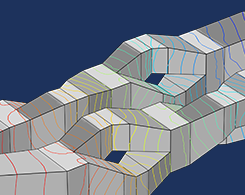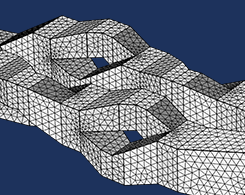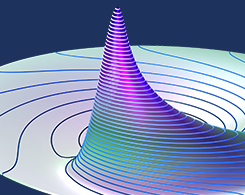Modeling Tools & Definitions Blog Posts

Using Geometry Parts and Part Libraries in COMSOL Multiphysics®
If you’re working with a model that contains complex geometries, you can use geometry parts and the part libraries to streamline and simplify your model setup.

Course: Defining Multiphysics Models
There are 3 approaches to setting up a multiphysics model in the COMSOL® software: Fully automatic, manual with predefined couplings, and manual with user-defined couplings. Here, we discuss #1.

How to Use the Parameter Estimation Study Step for Inverse Modeling
This blog post includes a tutorial video. Watch it to learn the steps for performing a parameter estimation study for inverse modeling in COMSOL Multiphysics®.

How to Export Images Automatically After Solving Your Model
Did you know that COMSOL Multiphysics® can automatically export results images and animations after your model solves? Here’s a step-by-step guide for setting up the process.

How to Use Model Methods to Accelerate Your COMSOL® Workflow
Methods aren’t just for enhancing simulation applications built in the Application Builder. In fact, you can create methods to streamline and automate repetitive modeling operations.

How to Use Job Sequences to Save Data After Solving Your Model
A useful but little-known modeling trick in COMSOL Multiphysics®: You can use job sequences to save data, including plot groups, results, and images, after solving a model.

How to Add Stop Conditions to Solvers in COMSOL Multiphysics®
Learn how to implement stop conditions for time-dependent and parametric solvers in COMSOL Multiphysics®, as well as scenarios for when and why you should.

How to Run Simulations in Batch Mode from the Command Line
Your step-by-step guide to efficiently running COMSOL Multiphysics® simulations in Batch mode from the command line.
